Sweden Summons Iran Deputy Envoy Over Execution Of Dissident
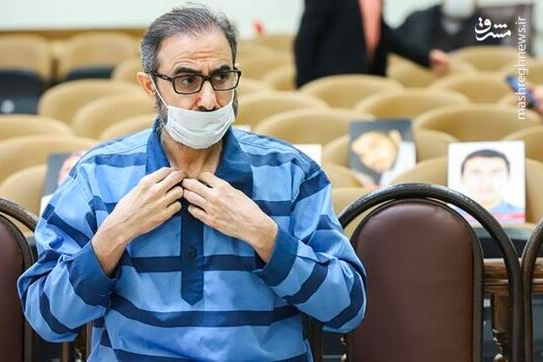
The execution of Iranian-Swedish political activist Habib Asyud has been condemned by the government in Sweden.

The execution of Iranian-Swedish political activist Habib Asyud has been condemned by the government in Sweden.
The Swedish Foreign Ministry summoned Iran’s deputy ambassador to Stockholm over the hanging on Saturday morning of the dual-nationality opposition figure.
Asyud, former leader of the Arab Struggle Movement for the Liberation of Ahwaz (ASMLA), had been convicted of leading an Arab separatist group accused of attacks including one on a military parade in 2018 that killed 25 people.
He was sentenced to death for being "corrupt on earth", a capital offence under Iran's strict Islamic laws.
The Swedish foreign ministry said in a statement that the death penalty is an inhumane punishment, and Stockholm condemns it along with other European Union countries.
Asyud, 49, was put on trial by a revolutionary court in Tehran in December. He was not allowed to choose his own defense attorney and was represented in his trial by a court-appointed lawyer. He was also forced under duress to make self-incriminating confessions.
Iranian authorities say he was found guilty for leading ASMLA (Harakat al-Nidal in Arabic), a movement which advocates the separation of southwestern Khuzestan Province and for plotting "numerous bombings and terrorist operations" in the oil-rich province with a large Arabic speaking population.
Iran's relations with Sweden have been strained since July 2022 when a Swedish court sentenced a former Iranian jailor, Hamid Nouri, to life imprisonment over executions of political prisoners in 1988.
Iran's foreign ministry spokesman Nasser Kanani in a statement “strongly condemned” the Swedish court’s “politically-motivated and unacceptable” verdict against Nouri, saying the Stockholm government would be responsible for the damage the verdict would cause in bilateral relations.
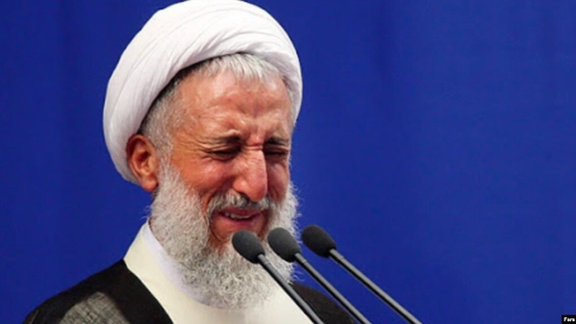
Clerics in Iran are “oppressed” and most live below the poverty line, according to Tehran Friday prayer imam Kazem Seddiqi.
The noted scholar alluded to members of the clergy being “ruthlessly” targeted by some “cruel people”.
Seddiqi said he hoped that the recent killing of clerics “would become a good origin of a cultural movement in society”.
He was speaking on Friday as the body of a missing cleric was found in northern Iran.
Ebrahim Fazel had gone missing on Tuesday as he had traveled from the religious city of Qom – where he was studying at the seminary – to his hometown in the northern province. His body was found in the coastal waters near the city of Jouybar.
The circumstances around his death remain unclear. The evidence has yet to reveal whether he drowned or his body was thrown into the water.
In recent months members of clergy have increasingly become targets of attacks by Iranians who see them as symbolizing the nation’s problems.
Last month, media close to the Revolutionary Guard reported that two clerics were targeted by a driver in Qom after another similar attack a few days earlier. It was the third attack on clerics within a few days. Tehran police announced on April 27 that a manhunt was underway to find another driver in the attempted murder of a cleric in the capital.
Since the 1979 revolution, the clergy have gained increasing power, but discontent has risen in recent years, particularly amid waves of protests over economic, political, and civil rights issues.
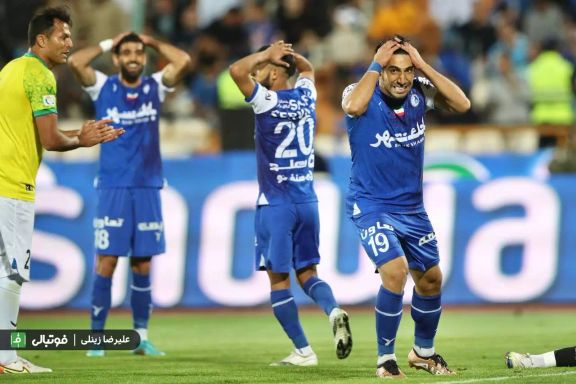
A Chinese businessman says he wants to buy a state-owned top-flight Iranian football club mired in debt – but the claim has been dismissed by Tehran.
A video posted on Friday showed the Chinese national watching a match in Abadan between his target club Esteghlal and Naft FC.
In the clip published by Borna news agency, which is affiliated with the ministry of sports, the businessman said he wants to buy Esteghlal.
He presented himself as the representative of a Chinese state company, and said that he plans to visit Iran's football infrastructure to start negotiations to invest in the popular football club.
But on Saturday the IRNA state news agency wrote that the managers of Esteghlal are not aware of this proposal. It added that the law prohibits Esteghlal and Persepolis clubs from being sold to foreigners.
IRNA said all the claims and reports of the possible purchase are false.
Both state-owned and two of the biggest football clubs in Iran, Esteghlal and Persepolis are in dire financial trouble. Although the clubs are both successful on the field, off the field their stability is now in doubt due to the mounting debt.
Esteghlal owe millions of dollars to its previous foreign players and coaches, while Persepolis have suffered financially within the past years.
The Asian FC Champions League (ACL) have already banned Esteghlal for one season due to unpaid debts. Now the Iranian giants face a second straight year that they might be excluded from the competition.
As a result of their failure to meet the entry requirements for the 32-team tournament, Esteghlal, their arch-rival Persepolis, and Gol Gohar Sirjan were expelled from the competition last season.

Iran had succeeded in reaching a deal with the United States in 2021 to lift the terrorist designation of the Revolutionary Guard, former President Hassan Rouhani says.
Rouhani in a meeting on May 3 with his former officials and aides said that before his term in office ended in mid-2021, his government had convinced the Biden administration not only to lift IRGC’s Foreign Terrorist Organization (FTO) designation by the Trump administration, but also to lift sanctions on Supreme Leader Ali Khamenei’s office and entities.
Rouhani has recently been holding regular meetings with his former aides, which is seen as an act of opposition toward hardliners, which control all three branches of the government.
One of the first foreign policy initiatives by the Biden administration in early 2021 was to launch indirect negotiations with the Islamic Republic to revive the 2015 JCPOA nuclear deal that former President Donald Trump had abandoned in 2018. This entailed lifting of sanctions that Trump had imposed.
The talks that lasted 18 months and eventually reached a deadlock in September 2022, were partly kept secret, and it is not clear if Washington had agreed to lifting the sanctions that Rouhani is taking credit for.
One thing which is clear is a five-month hiatus in the negotiations in Vienna from June to November of 2021 – the period from Iran’s presidential elections to when the new administration decided to return to talks.

Iran’s hardliners had readied themselves to capture the presidency, with Khamenei’s apparent blessing. The constitutional Guardian Council loyal to the Supreme Leader, disqualified most serious candidates, leaving the path open for Khamenei loyalist Ebrahim Raisi to get elected in a low-turnout vote.
Whatever Rouhani’s negotiating team had achieved in the nuclear talks from April to June 2021 became meaningless once the hardliners took office.
Rouhani was quoted by reformist media on Saturday as having said during his meeting that his government had wanted to solve as many problems as possible for the incoming administration. “Everything was completed for the revival of the JCPOA and was ready,” he was quoted as saying.
The former president went on to say, “When I informed the Supreme Leader [about lifting of the sanctions], he was very happy, but unfortunately this did not come to fruition.”
Rouhani also took credit for many domestic accomplishments and claimed that several major projects were almost completed and ready to be inaugurated by the new administration. He implicitly criticized the Raisi administration of not following up and leaving these projects in limbo.
In the wake of the unprecedented anti-regime protests last fall, reformist and centrist regime insiders have been trying to drive home the point that hardliners, having, monopolized power in parliament and controlled the presidency, have failed to solve the country’s multiple crises.
In fact, after the breakdown in the nuclear talks, the economic situation has worsened, with the national currency rial losing half its value against the US dollar, the euro, and other major currencies.
Many pundits and politicians have been blaming the deepening political and economic crises on the hardliners for not reaching a nuclear agreement with the United States, which would lift crippling sanctions.
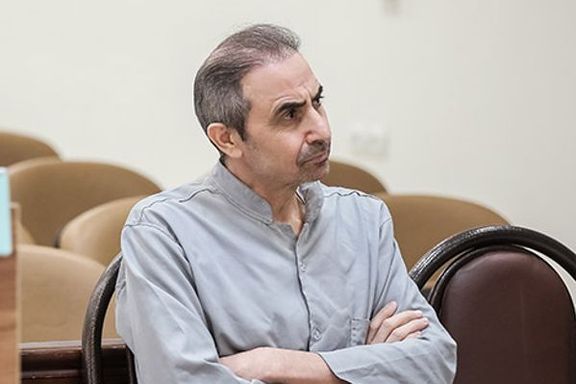
Iran has executed Iranian-Swedish political activist and former leader of the Arab Struggle Movement for the Liberation of Ahwaz (ASMLA) Habib Chaab (Asyud).
The judiciary said in a statement published by Mizan News, its official news website, that the execution sentence for “corruption on earth” passed on Chaab in 2022 was carried out Saturday morning. The judiciary had announced the confirmation of the death sentence on March 12.
Chaab, 49, was put on trial by a revolutionary court in Tehran in December. He was not allowed to choose his own defense attorney and was represented in his trial by a court-appointed lawyer. He was also forced under duress to make self-incriminating confessions.
Iranian authorities say Chaab was found guilty for leading ASMLA (Harakat al-Nidal in Arabic), a movement which advocates the separation of southwestern Khuzestan Province and for plotting "numerous bombings and terrorist operations" in the oil-rich province with a large Arabic speaking population.
Tehran classifies the ASMLA as a ‘terrorist’ organization responsible for acts of terror including an attack on a military parade in Ahvaz on September 22, 2018, which killed 25 military and civilians. ASMLA accepted responsibility for the bombing.
Iranian authorities accused Chaab of receiving funding for the operations of the rebel group from Saudi Arabia and claimed that he was “protected” by Israel’s Mossad and the Swedish intelligence (SAPO). The prosecution also claimed that other ASMLA leaders are based in other European countries, namely Denmark, Sweden and the Netherlands.
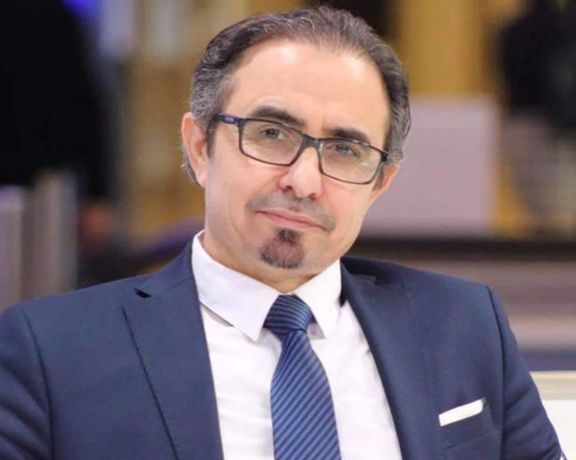
On March 14 2022, a day after the confirmation of Chaab’s death sentence, Sweden summoned Iran's ambassador to the Ministry for Foreign Affairs “to receive Sweden’s protest against the death penalty issued against detained Swedish citizen Habib Chaab.”
“The Government has demanded that the death penalty not be enforced and recalled the EU’s common position, which condemns all use of the death penalty, wherever it is applied. The Ministry has also reiterated its demand for consular access to Mr. Chaab, which Minister for Foreign Affairs Tobias Billström had also previously conveyed to Iran’s Minister of Foreign Affairs,” the Swedish foreign ministry said in a statement at the time.
Iran's relations with Sweden have been strained since July 2022 when a Swedish court sentenced a former Iranian jailor, Hamid Nouri, to life imprisonment over executions of political prisoners in 1988.
Iran's foreign ministry spokesman Naser Kanani in a statement “strongly condemned” the Swedish court’s “politically-motivated and unacceptable” verdict against Nouri, saying the Stockholm government would be responsible for the damage the verdict would cause in bilateral relations.
In November 2020, a few days after ASMLA told Al Arabia that its leader was abducted in Turkey by Iranian security forces during a visit, Iran’s intelligence ministry issued a statement confirming that Chaab had been captured outside Iran and taken to Tehran, without mentioning where he was captured.
Ankara said in December 2020, when relations with Iran were tense just after the Nagorno-Karabakh war between Azerbaijan and Armenia, that it had arrested 13 people led by an Iranian for operations including assisting Iranian security forces in the abduction of Chaab in October of the same year on Turkish soil and delivering him to Tehran.
In March, Iran's judiciary said the Revolutionary Court of Ahvaz had sentenced six Arab activists to death for the killing of two Basij militia members, a policeman, and a conscripted soldier in two separate operations. Six others received long prison terms between 5 to 35 years by the same court. The accused belonged to the armed branch of ASMLA, the judiciary said, adding that the sentences could be appealed.
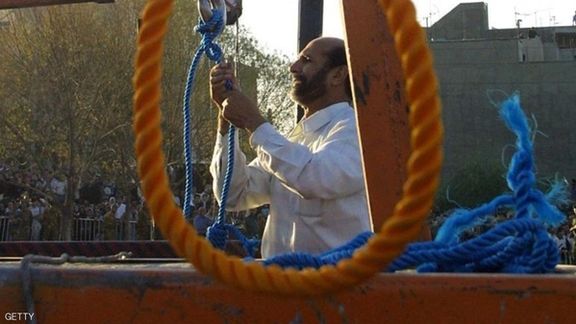
Iran has carried out at least 42 executions in the past 10 days alone, human rights campaigners warned on Friday.
The victims include 22 members of the Baluch minority, according to the Norway-based monitoring group the Iran Human Rights Organization (IHR).
The figures mean the Islamic Republic has executed one person every six hours while governments worldwide have remained silent.
Calling on the international community to take immediate action, IHR director Mahmood Amiry-Moghaddam said: “More than half of those executed were Baluch minorities and drug defendants from the most marginalized communities who are low-cost victims of the government’s killing machine.”
He added that the purpose of the executions is to create societal fear, not to fight crime.
“The UN Office for Drugs and Crimes (UNODC) and their funding Member States have a unique responsibility to stop the Islamic Republic’s execution machine and shouldn’t allow the authorities’ cooperation with the UNODC to legitimize the executions,” noted Amiry-Moghaddam.
IHR also warned of widespread further executions set to take place in Qezel Hesar Prison in Karaj near Tehran.
Of the 42 people executed in the last ten days, only two have been announced by official sources. At least 194 people have been executed in 2023 in Iran.
Baluch minorities are grossly overrepresented in Iran's execution numbers. Baluch people also accounted for almost half of the executions related to drugs in 2022.